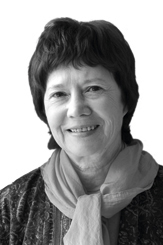A 17th century farmhouse in Surrey with one of Britain's oldest squash courts
Fords Farm is on the market for the first time in over half a century.
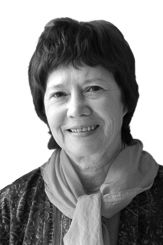
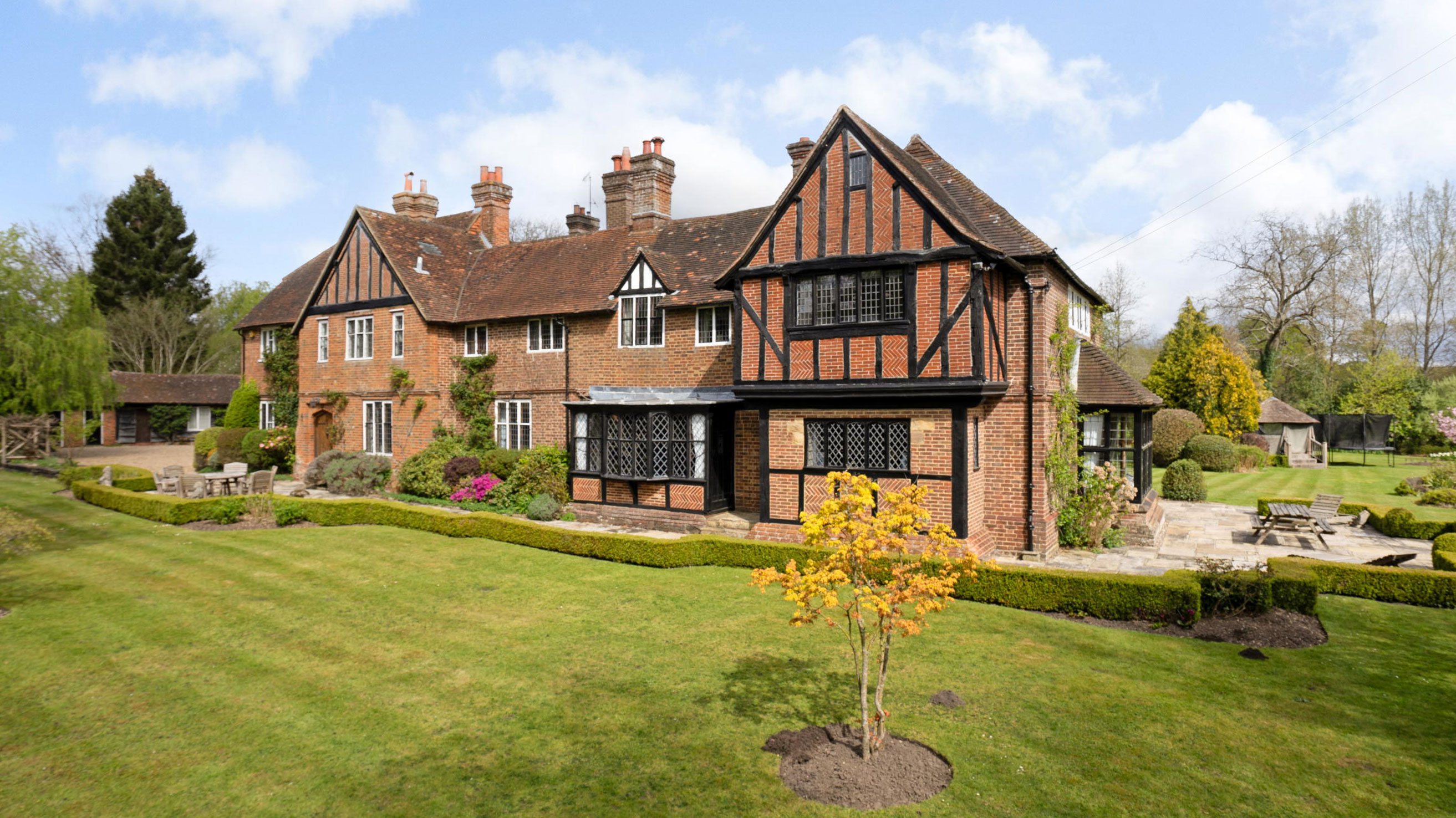
Exquisite houses, the beauty of Nature, and how to get the most from your life, straight to your inbox.
You are now subscribed
Your newsletter sign-up was successful
With wellness and physical fitness very much in vogue, family houses with exceptional sporting and recreational facilities are likely to command a premium, both now and for years to come. One such is secluded, Grade II-listed Fords Farm in Surrey, a remodelled and extended 17th-century farmhouse tucked away at the eastern edge of the village of Pirbright, six miles from Woking and just over six miles from Guildford mainline station.
It is for sale for the first time in more than 50 years with a guide price of £3.65 million, through joint agents Jonathan Brandling-Harris, co-founder of bespoke North London agents House Collective, and Joanna Cocking of Hamptons Private Office.
The intriguing 6,800sq ft house, which evolved from a modest farm dwelling into a country house full of character, comes with sporting facilities that include a tennis court, swimming pool and one of the oldest private squash courts in Britain.
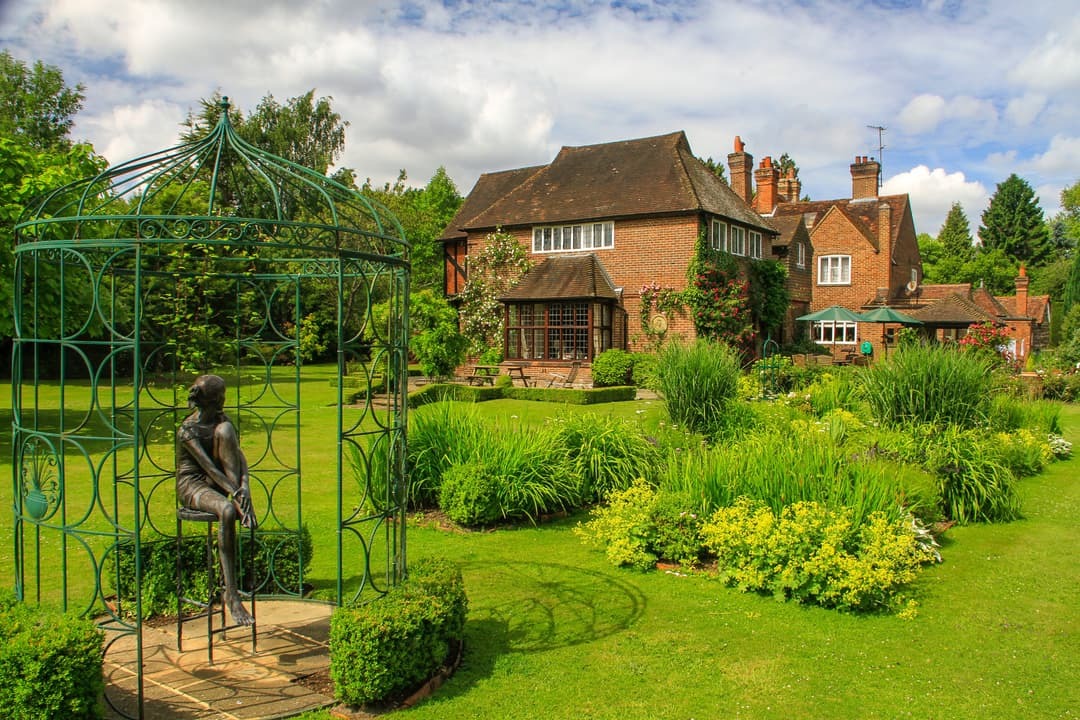
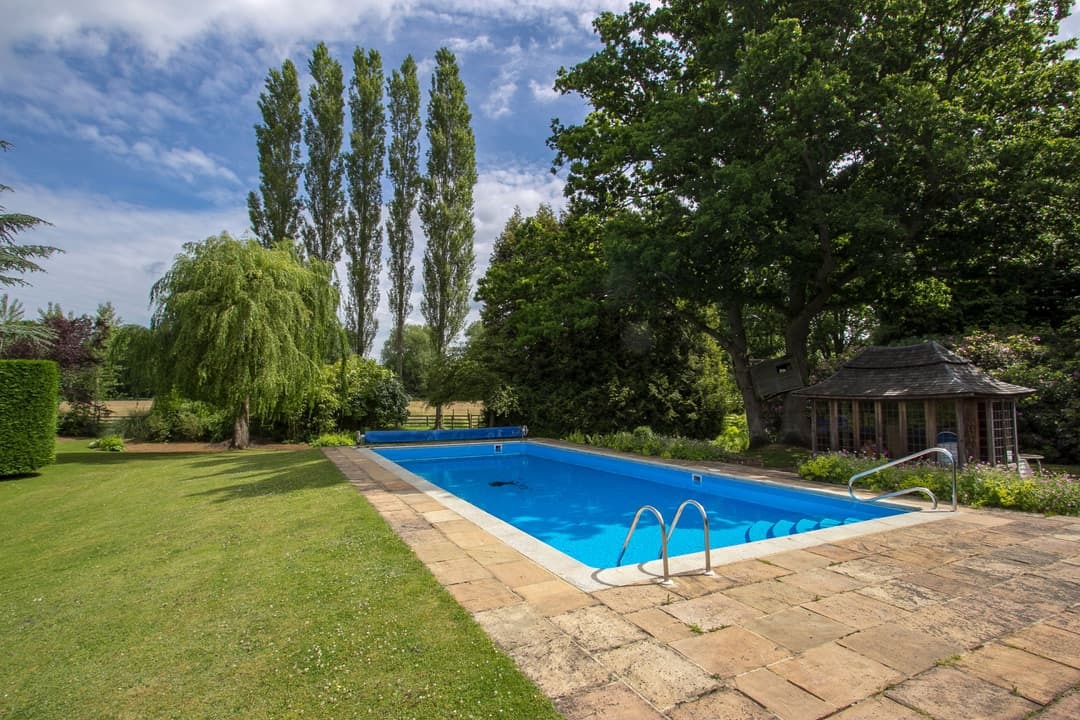
Set in some 12 acres of landscaped gardens, woodland and meadows, Fords Farm has been tastefully renovated and carefully maintained by successive generations of the Stearn family, up to and including current owners Michael and Penelope Stearn.
Described by Jonathan as ‘an exquisite balance of the historical and the modern’, the main house offers elegant accommodation across three floors, including an impressive reception hall, a grand drawing room, a sitting room, a wonderful dining room.
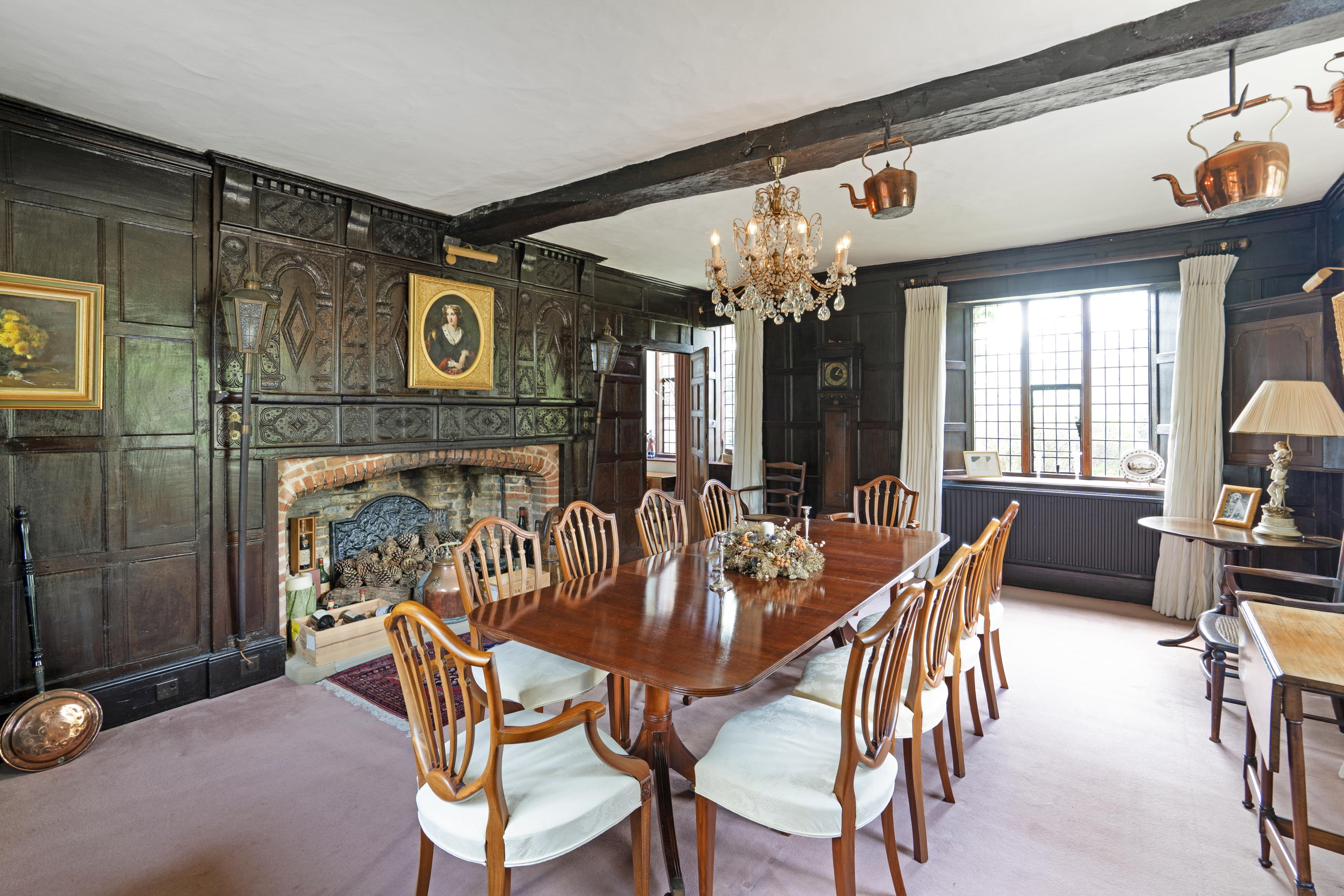
There is also a music room, study, snug, traditional farmhouse kitchen/breakfast room, pantry, boot room, eight bedrooms and four bath/shower rooms.
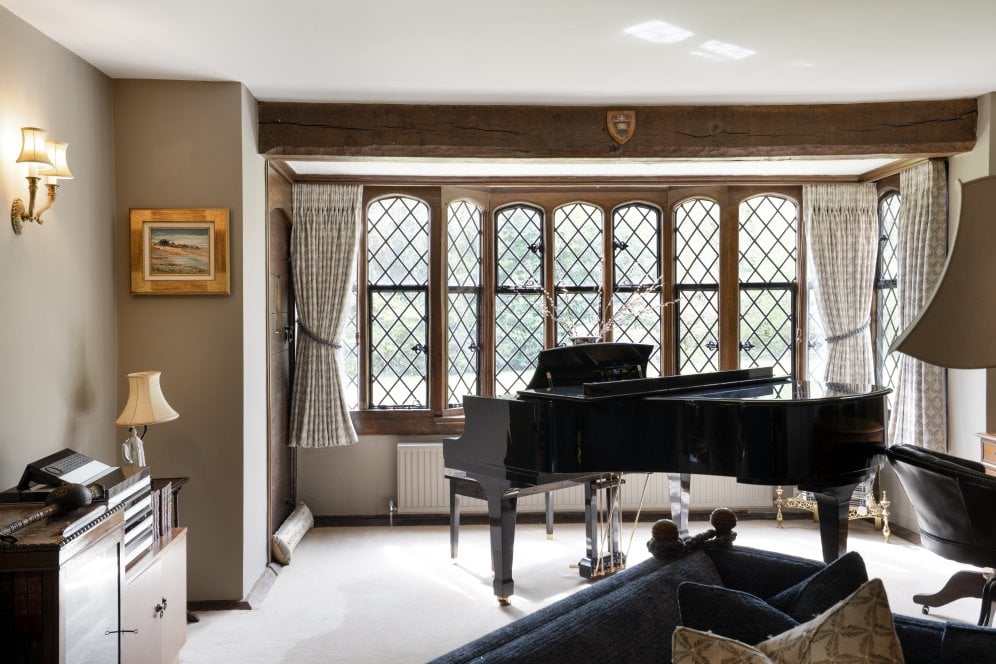
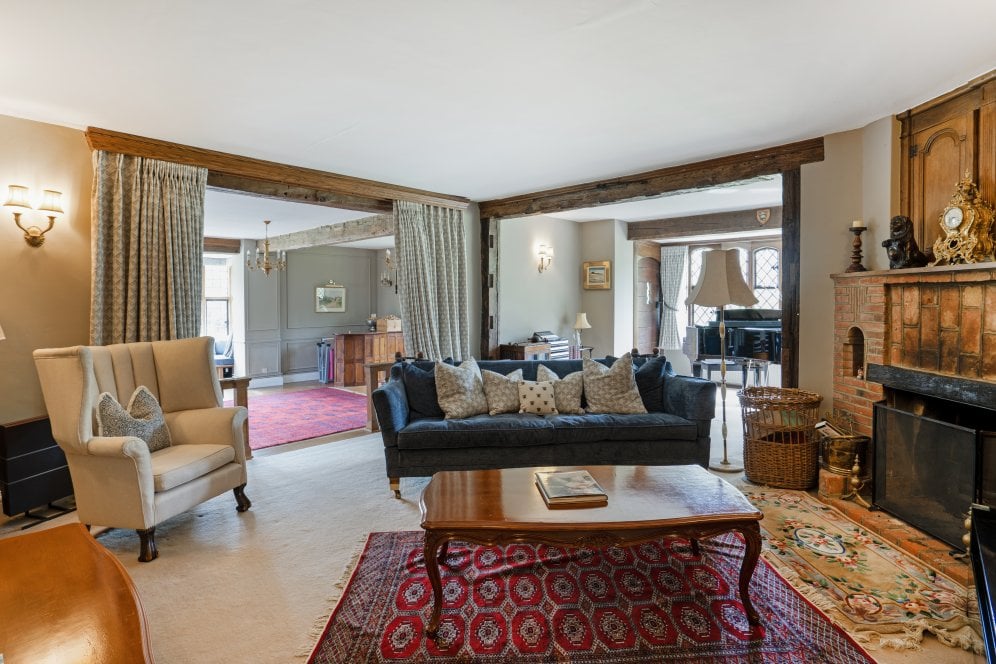
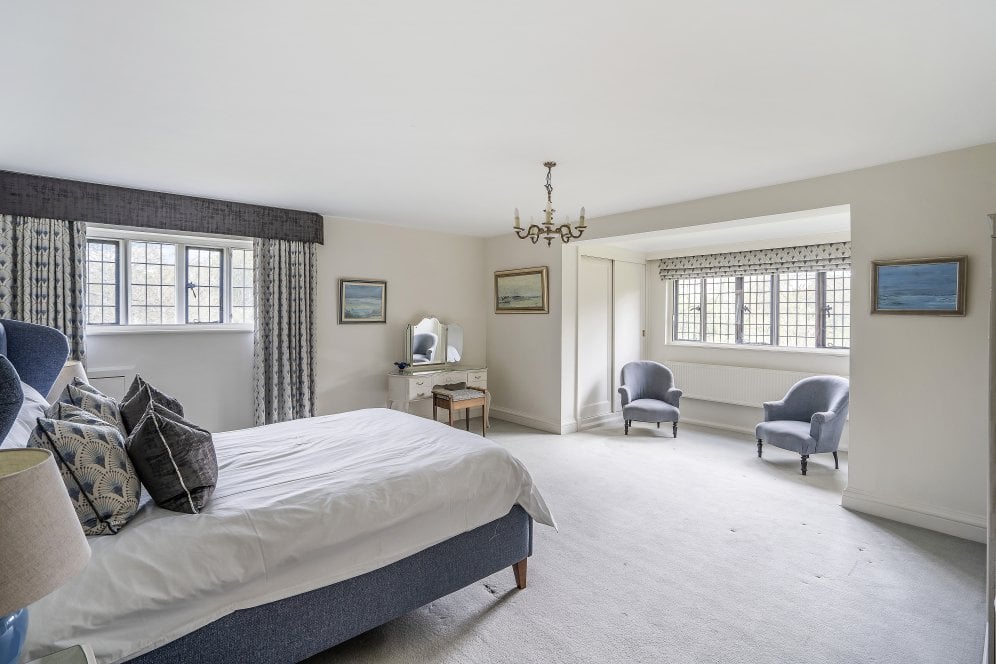
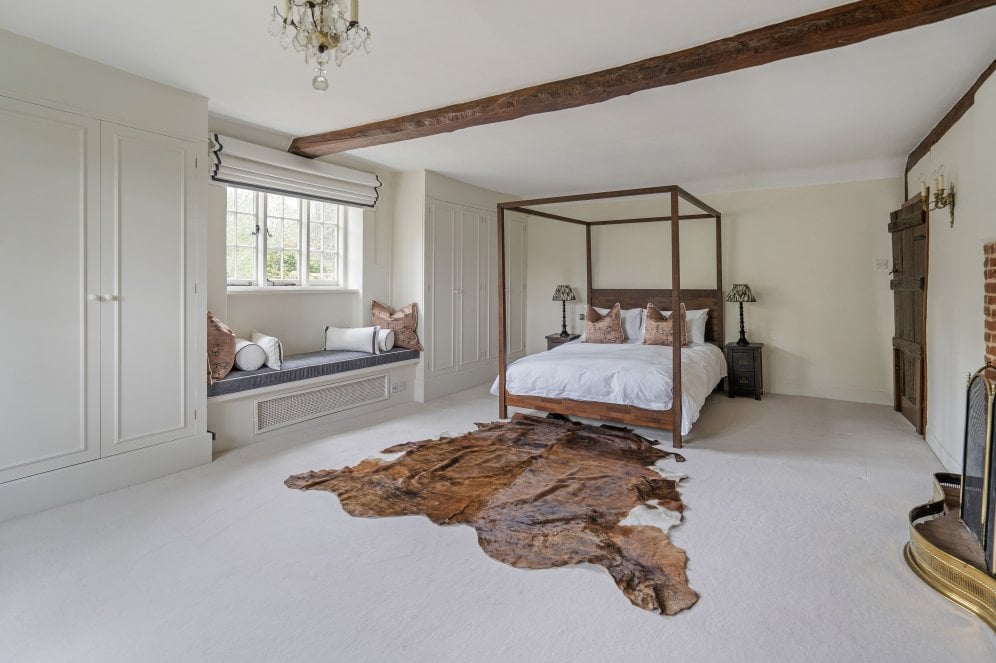
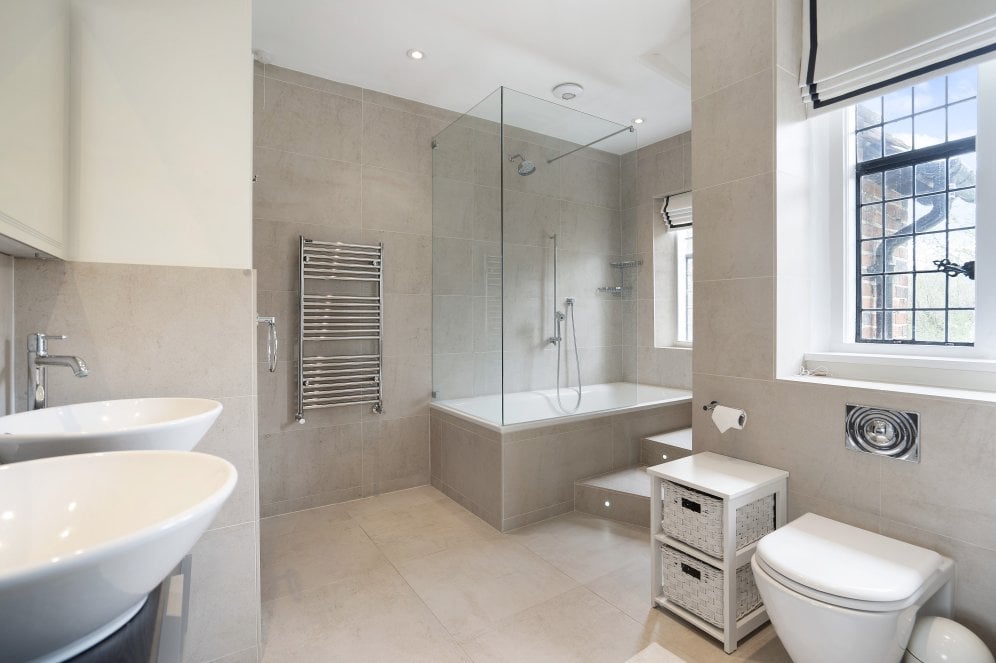
Beyond the main house, an interesting mix of outbuildings includes a period granary, garages, wine and tool stores, workshops, greenhouses, two staff or guest cottages and the 1920s squash court — a piece of sporting history that was listed in a 1997 survey of early squash courts in private houses by the National Trust. Reputedly first played in the 1860s by boys at Harrow School, squash was, in its early days, the preserve of grand private houses, public schools and gentlemen’s clubs; in April 1912, a squash court went down with RMS Titanic.
Exquisite houses, the beauty of Nature, and how to get the most from your life, straight to your inbox.
Michael's eldest daughter, Emily-Jane Gladstone, who is overseeing the sale, has vivid memories of her father’s passion for the sport and hectic sessions with fellow aficionados in the 1980s and 1990s. She recalls a magical childhood spent at Fords Farm, where her favourite rooms are the atmospheric dining room at the west end of the house, with its wood-panelled walls, lead-light windows and splendid fireplace, and the vast, ‘show-stopping’ drawing room in the gabled wing at the east end. Incidentally, after a few trial runs at squash, she chose to hone her tennis skills instead, on the court at Fords Farm.
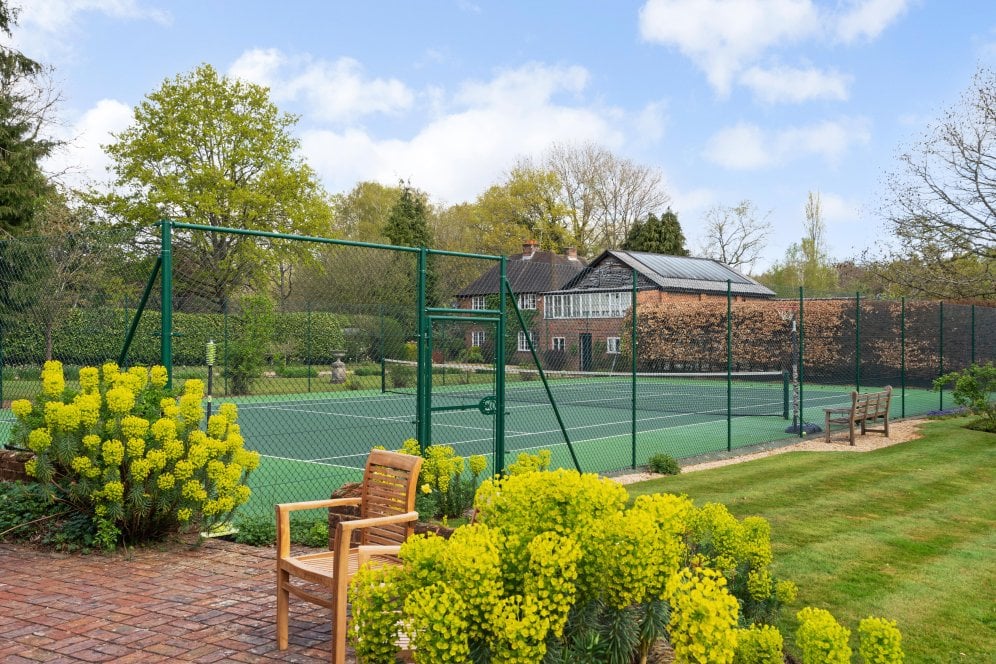
The tennis court a Fords Farm; the building containing the squash court can be seen in the background.
Research compiled by Michael and Penelope Stearn suggests the property derives its name from one Richard Forde or Fford, who is listed in the archives of the Surrey Musters (troop assemblies) as one of the ‘Pyrbrighte Bill-men of þe beste sorte’ in 1572/73, and as one of the ‘Purbrighte Pike-men Selected’ in 1583/84. Following Richard’s death, Fords Farm was passed down through his family.
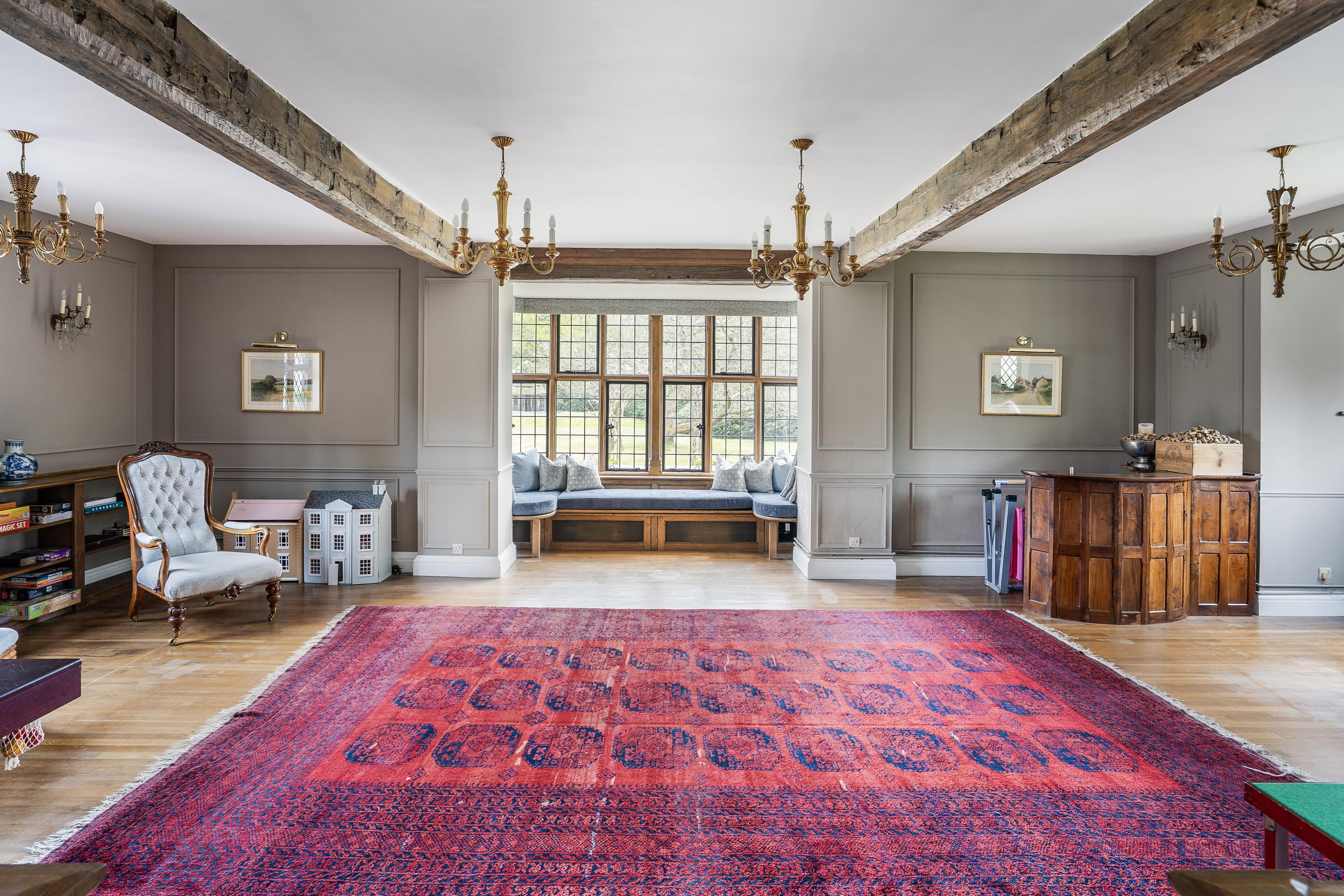
In 1750, it was inherited by a Bridget Ford, who married Blunden Moore and lived with him at Fords Farm with their sons, William and Richard, until after his death in 1768. In 1780, she remarried, this time to George Tate, who acquired all the Moore and Ford lands in Pirbright from his stepson William.
By 1829, the Tates’ daughter, Mary, had inherited Fords Farm. She settled there with her stepbrother Richard Moore, who predeceased her and, in 1839, the property passed to his son, the Revd John Fitzmoore Halsey. He was already a major landowner, having married the heiress Sarah Halsey of Gaddesden Park near Hemel Hempstead, Hertfordshire. In 1878, his son sold Fords Farm to a local farmer, John Cherryman, who left it to his son, also John. In 1902, the younger Cherryman pulled down the older part of the house, which he rebuilt and enlarged, later selling in 1923 to the trustees of A. H. Mure, who sold it two years later to Basil Hastings Bennett.
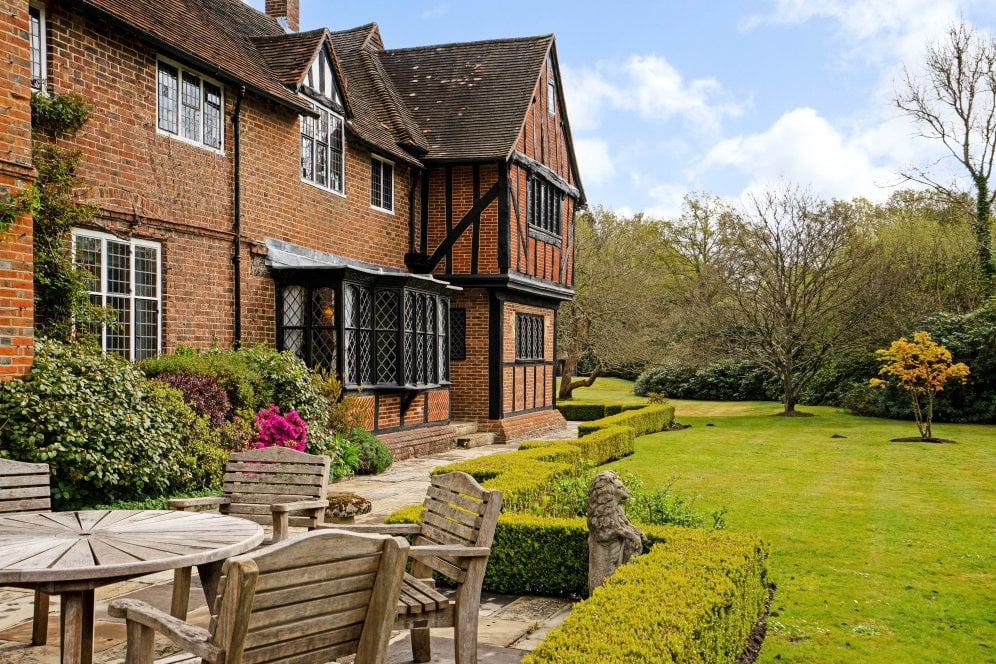
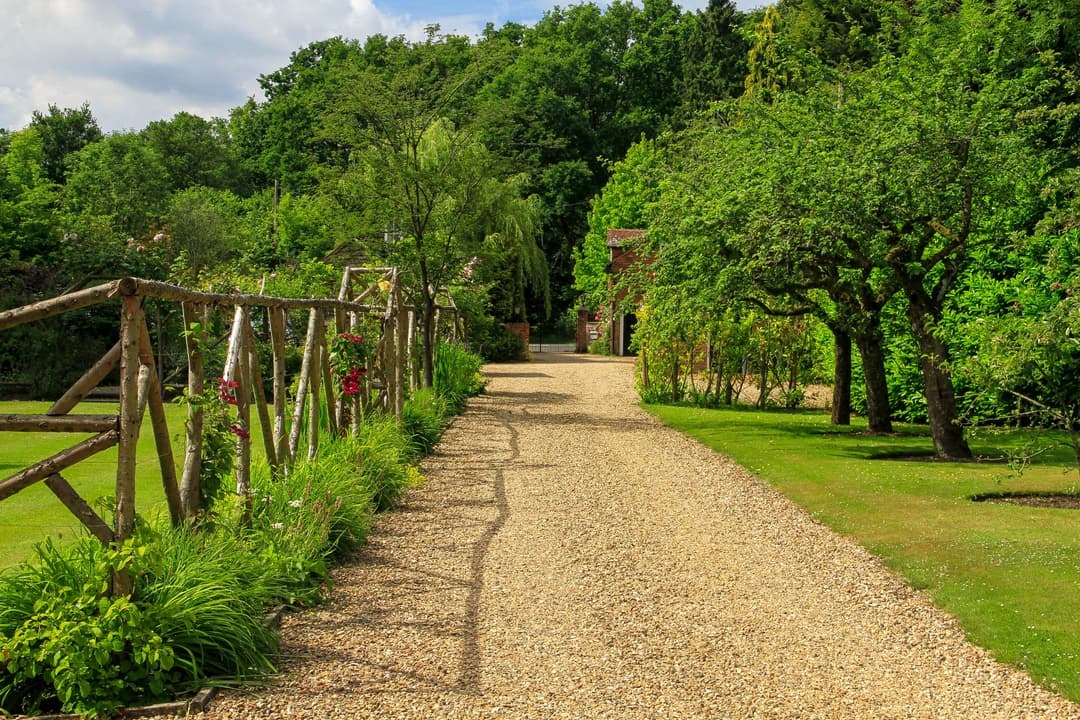

Over the course of the next 11 years, the appearance of the house was considerably altered and it almost doubled in size; at the same time, the squash court and swimming pool were built and the tennis court laid. In 1936, the house was sold again, to one Walter Cooke, who built the two cottages near the squash court. Less than two years later, he sold to Harold Rickett, who rebuilt the wooden sheds on either side of the playroom in brick and added the aluminium greenhouses.
The small room at the south end of the house was also extended to fit the pillars supporting the upper floor. Rickett died in 1969 and, three years later, Fords Farm was sold to John Polland, who sold to Michael in 1984.
Fords Farm is for sale at £3.65 million via Hamptons and House Collective

